Complete guide to planning your wedding
Rent a Chef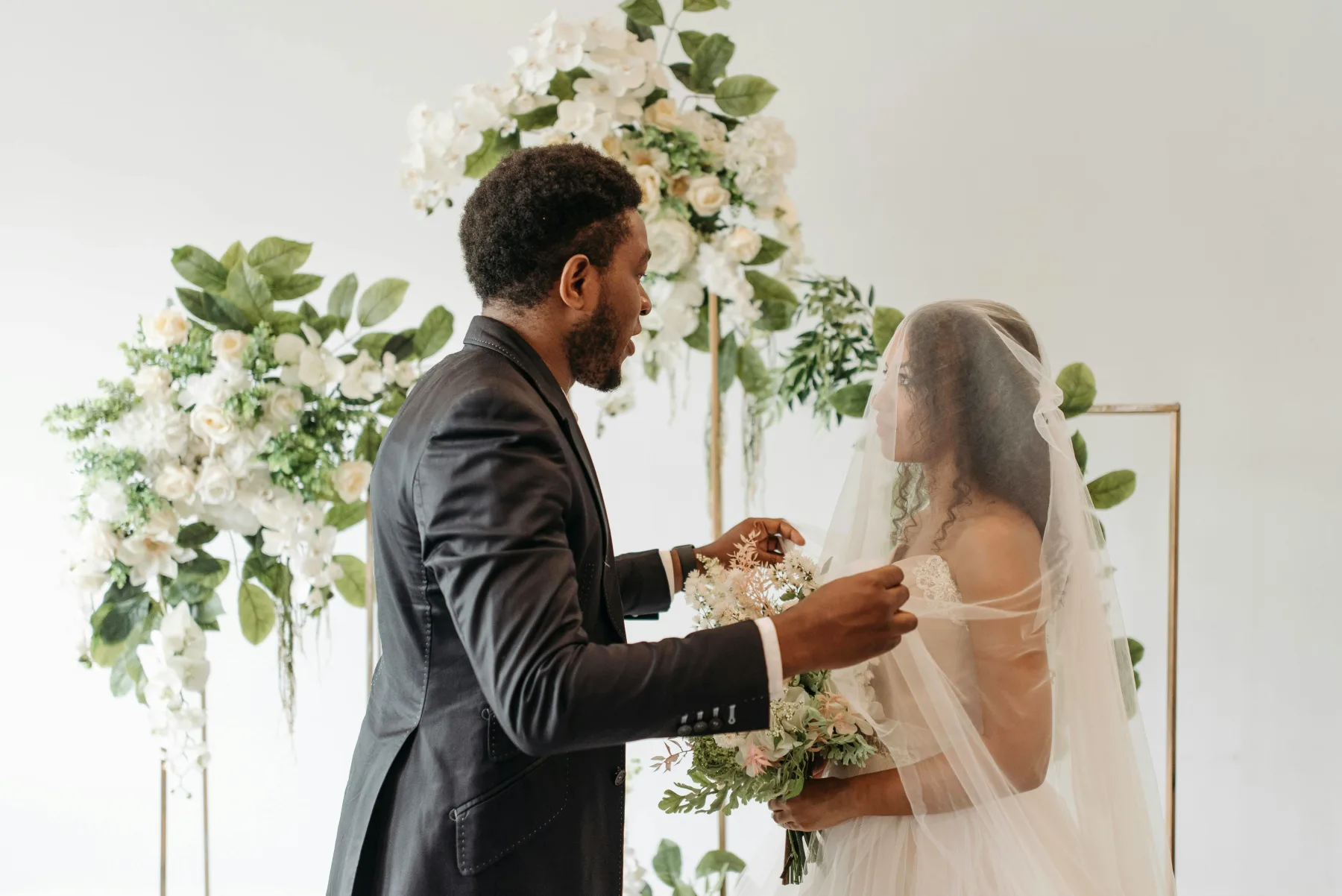
Introduction: Understanding Wedding Planning
Planning a wedding is a journey filled with excitement, creative decisions, and sometimes challenges. It is a process that requires attention to many details to ensure that the day is as memorable as you have dreamed of. For many couples, the first step is to understand what wedding planning truly entails. It's about creating a structured timeline that will guide you from the first decisions to the last details on the day itself.
An important part of this planning is figuring out what matters most to you as a couple. Is it a big party with all friends and family, or an intimate ceremony in beautiful surroundings? This fundamental choice will guide many of the other decisions you will need to make along the way.
Once you have a clear vision, the practical part begins: budgeting, choosing the date and location, and assembling the guest list. Each of these elements requires careful consideration and planning. It can be helpful to create a list of priorities so you can keep track of what is most important to you.
To help organize the process, it may be a good idea to create a wedding timeline. This timeline can include milestones such as selecting wedding attire, booking venues and catering, and sending out invitations. By having a clear plan, you can reduce stress and ensure that you have time to enjoy each part of the planning process.
For many couples, it is also a time to reflect on their relationship and the values they want to bring into their marriage. Use this time to communicate and collaborate, so you both feel that your day reflects you as a couple.
Regardless of how you choose to approach the process, it is important to remember that it is your day. Prioritize what means the most to you and don’t be afraid to do things your own way.
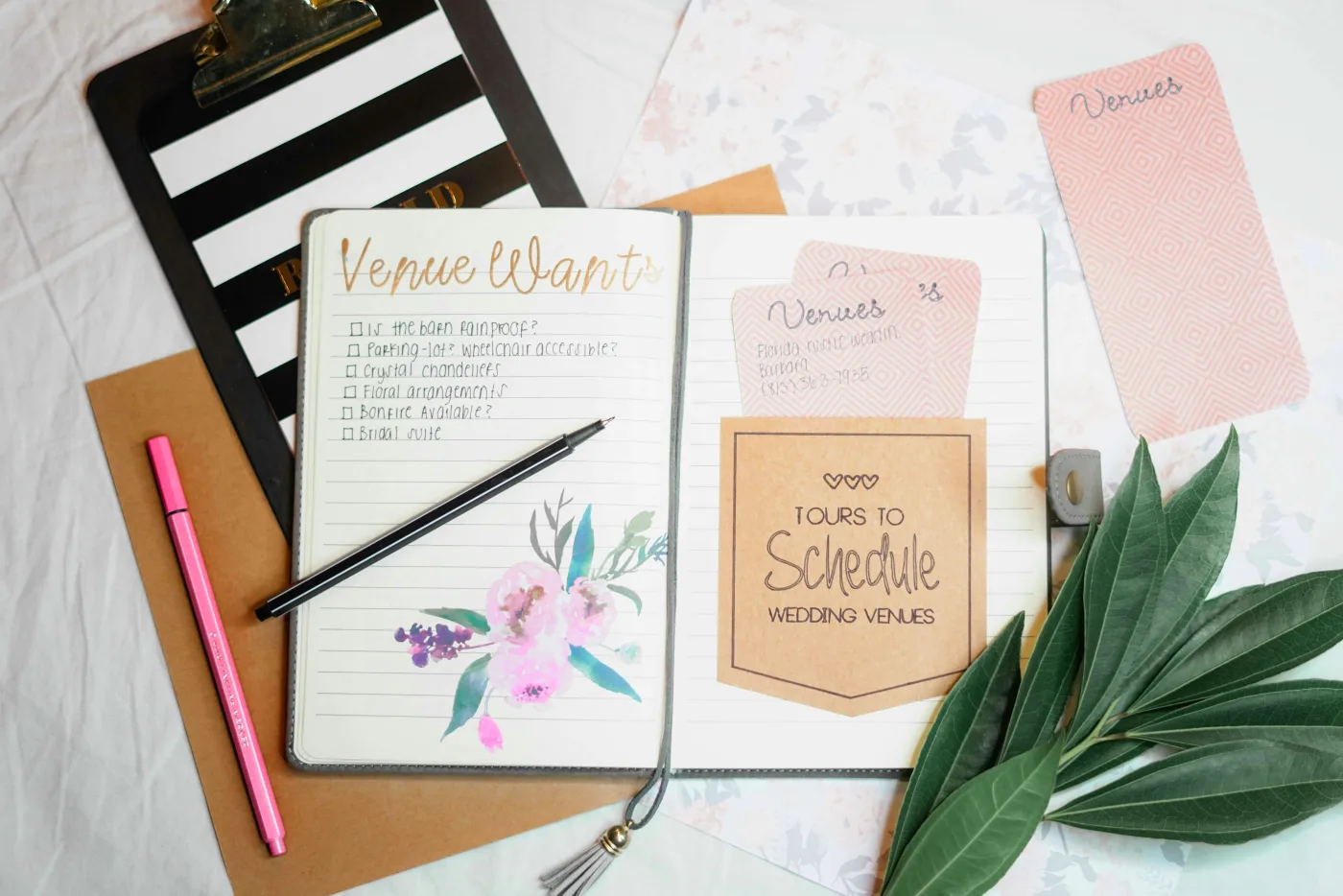
How to Create a Wedding Budget and Decide on Style?
Creating a wedding budget and deciding on a style is one of the first and most crucial steps in wedding planning. It sets the framework for the entire event and helps ensure that all decisions made align with the financial parameters and desired aesthetics.
How to create a realistic wedding budget:
- Start by discussing the overall budget with your partner. It is important to agree on how much you want to spend.
- Create a list of the main expenses, including venue, catering, attire, decorations, music, and photography.
- Prioritize the elements that matter most to you. Perhaps a fantastic photographer is more important than extravagant floral decorations.
- Keep track of expenses along the way by updating the budget regularly. This will help avoid unpleasant surprises.
Deciding on wedding style:
- Consider what overall theme or style fits you as a couple. Are you into traditional, modern, rustic, or perhaps bohemian?
- Choose a color palette that complements your chosen style and can be used in invitations, floral arrangements, and decorations.
- Inspiration can be found in various places, from wedding magazines to social media like Pinterest. Let yourself be inspired, but remember to tailor it to your own taste.
- Take into account the season and the venue’s characteristics when deciding on the final style.
Having a clear budget and defined style helps streamline the decision-making process and ensures that the wedding reflects your personalities and preferences. It’s also a good idea to be flexible and open to changes as unforeseen costs and creative input may arise along the way.

Choosing Venue and Catering
Choosing the right venue and catering is crucial in ensuring that your wedding becomes an unforgettable experience for both you and your guests. This is where the actual celebration takes place, and it is here you create memories that will last a lifetime. Finding the perfect place requires consideration of several factors such as budget, location, and style.
Venue can range from grand castles and elegant hotels to charming barns and intimate gardens. When choosing a venue, you should consider the following:
- Capacity: Ensure the venue can comfortably accommodate your guest list.
- Facilities: Check if there are adequate facilities such as parking, restrooms, and accessibility options.
- Atmosphere: Choose a place that reflects the mood and style you desire for your wedding.
- Logistics: Think about the distance from the ceremony to the reception and whether guests can easily travel back and forth.
When it comes to catering, the food not only needs to be delicious but also cater to your guests' preferences and any dietary needs. Here, ChefMe can play an important role by providing customized catering solutions. We can assist with everything from private dining at home to luxurious catering that aligns with your wedding style. We ensure all food preferences and allergies are considered, so everyone can enjoy an unforgettable experience.
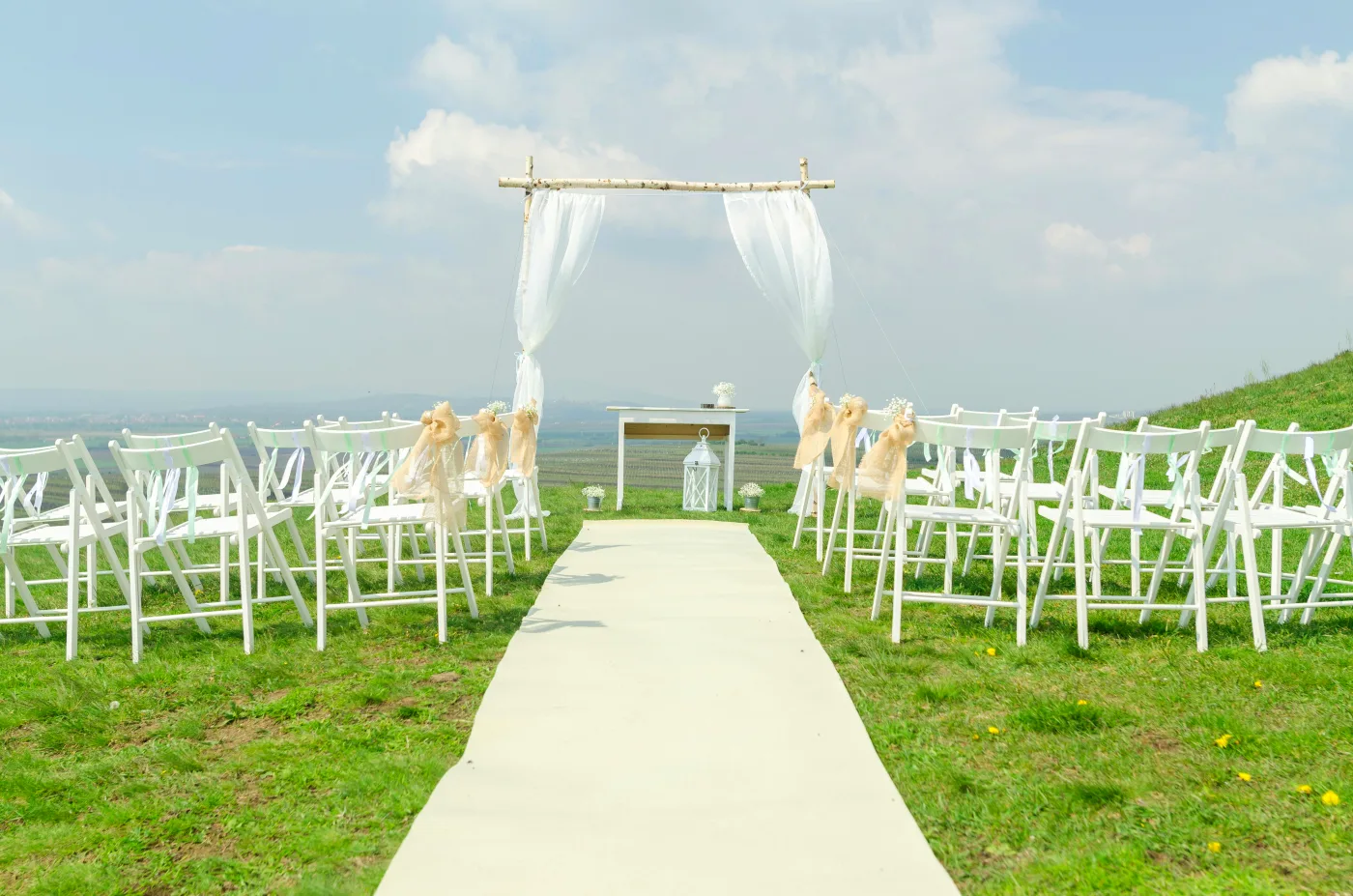
Choosing the right venue and catering takes time and research. It is advisable to visit multiple locations, liaise with catering companies, and taste the food before making your final decision. Remember, it’s not just about finding a beautiful place, but also about creating the right atmosphere where you and your guests can celebrate love.
How to Assemble a Guest List and Send Invitations
Assembling a guest list for your wedding can feel like a daunting task, but with a structured approach, it can become a manageable and straightforward process. Here are some steps that can help you get started:
- Start with a brainstorm: Begin by making a list of all the people you would consider inviting. Include both family, friends, colleagues, and other important persons in your lives.
- Prioritize your guests: Divide the list into different categories like "essential", "important", and "nice-to-have". This will help you trim down if necessary.
- Consider budget and venue: Ensure your guest list fits both your budget and the capacity of the chosen venue. This may require some tough choices but is necessary to ensure a good experience for everyone.
- Be mindful of plus-ones: Consider whether you want to allow guests to bring a plus-one, and how this affects the number of seats available.
Once the guest list is in place, it's time to send out the invitations. Here are some important points to consider:
- Design and theme: Ensure that the design of the invitation reflects the style and theme of the wedding. This gives guests a taste of what to expect.
- Timeline: Send out invitations well in advance, preferably 6-8 months before the wedding, so guests have time to plan their attendance.
- RSVP and contact information: Include a clear deadline for RSVPs and contact information, so guests can easily inform you of their attendance.
Remember that the guest list and invitations form the foundation for a memorable event, so take your time to ensure they are thoughtful and personal.
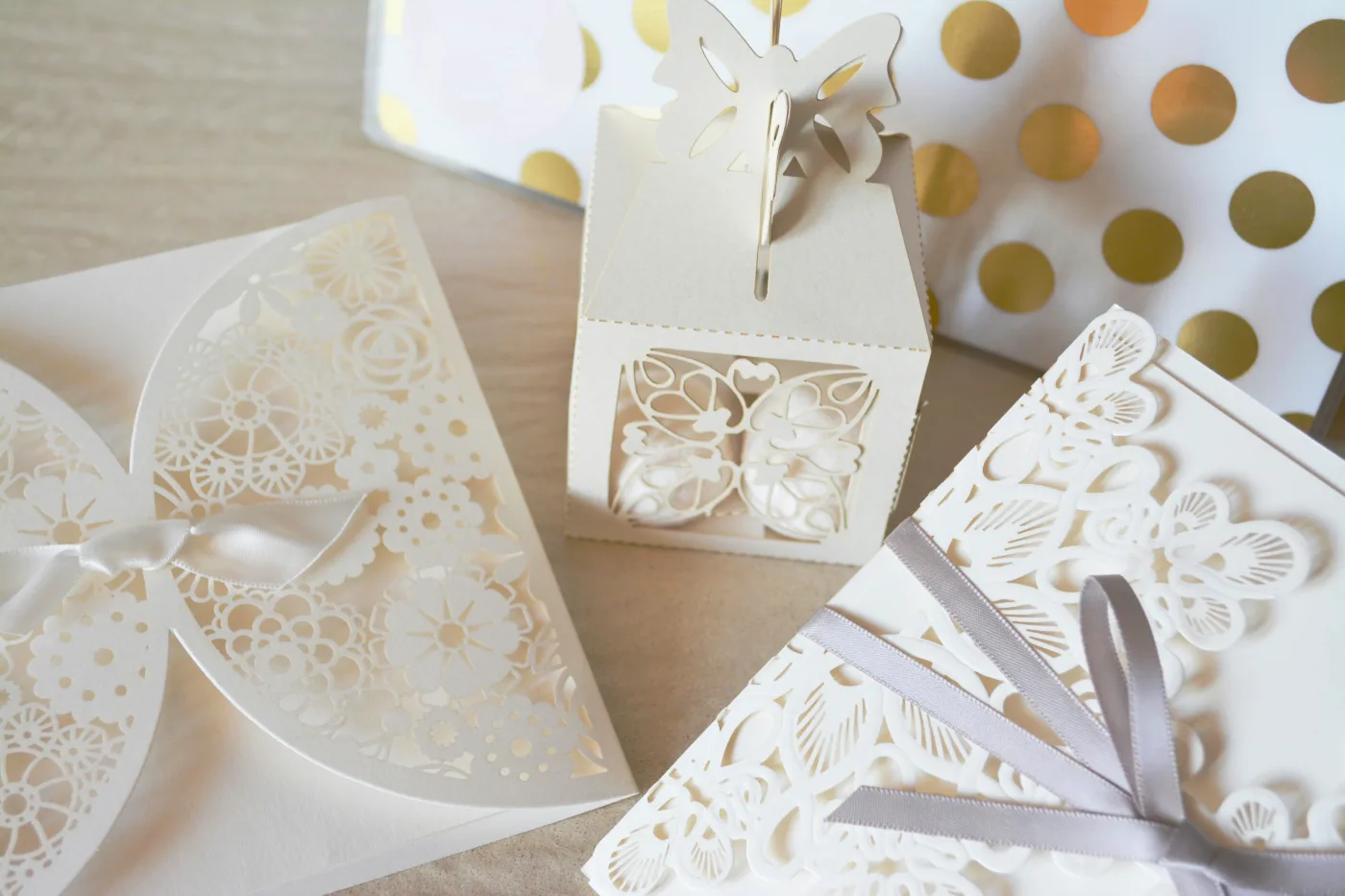
Choosing Wedding Attire and Clothing
Choosing wedding attire and clothing is one of the most personal decisions in wedding planning. It's not just about finding the perfect wedding dress or the ideal suit, but also about ensuring that both the bride, groom, and the entire wedding party feel comfortable and look fantastic. Here are some steps to help navigate this decision-making process:
- Start early: It’s important to begin the search for wedding attire early, as fittings and potential changes can take time. Many bridal gowns require several fittings before they fit perfectly.
- Research and inspiration: Spend time looking for inspiration in magazines, on social media, or by attending bridal fairs. This can help define preferences for style, fabric, and design.
- Budget: Set a clear budget for attire and accessories. Remember to include costs for alterations, shoes, jewelry, and any extra accessories.
- Clothing for the bridal party: Consider color themes and styles for bridesmaids and groomsmen. It’s important that their attire complements the wedding style while making them feel comfortable.
- Try different styles: Be open to trying on various styles, even those you may not have considered. Sometimes the perfect dress or suit can be an unexpected surprise.
- Fit and comfort: Ensure the clothing fits well and is comfortable to wear. The wedding day is long, and comfort is key to enjoying the day to the fullest.
Remember that the choice of wedding attire is an opportunity to express personal style and taste. It’s part of what makes the day unique and memorable.
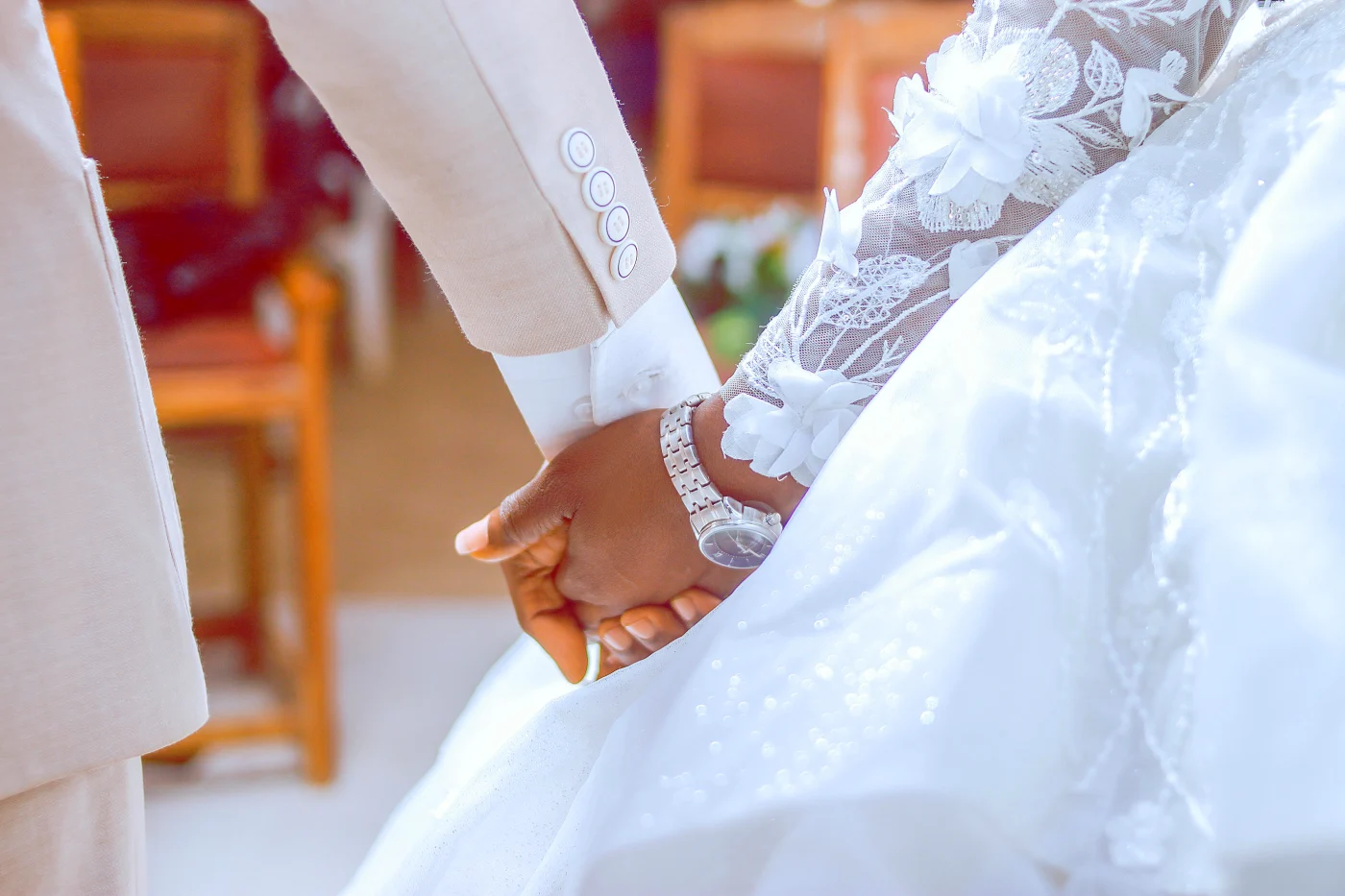
Details for the Ceremony and Reception
When it comes to details for the ceremony and reception, there are many aspects to consider to create a memorable experience for both the couple and their guests. Here are some of the key elements you should keep in mind:
- Music: The choice of music can set the tone for the entire day. Consider what style best suits your taste and the theme of the event. Should it be a live band, a DJ, or perhaps a combination of both?
- Decoration: From floral arrangements to table settings, decoration plays a large role in creating the desired atmosphere. Choose colors and styles that complement your overall wedding theme.
- Transportation: Ensure there is a transport plan, which can include everything from the bride's arrival to guests' transport from the ceremony to the reception.
- Photography and videography: Capturing the moments from your day is important. Consider hiring professionals who can ensure that all the significant moments are preserved.
- Schedule for the day: Draft a detailed timeline for the ceremony and reception to ensure everything runs smoothly. It may also be helpful to share the schedule with your guests.
These elements require a fair amount of planning and coordination, but with the right attention, they can help make your wedding day an unforgettable experience.
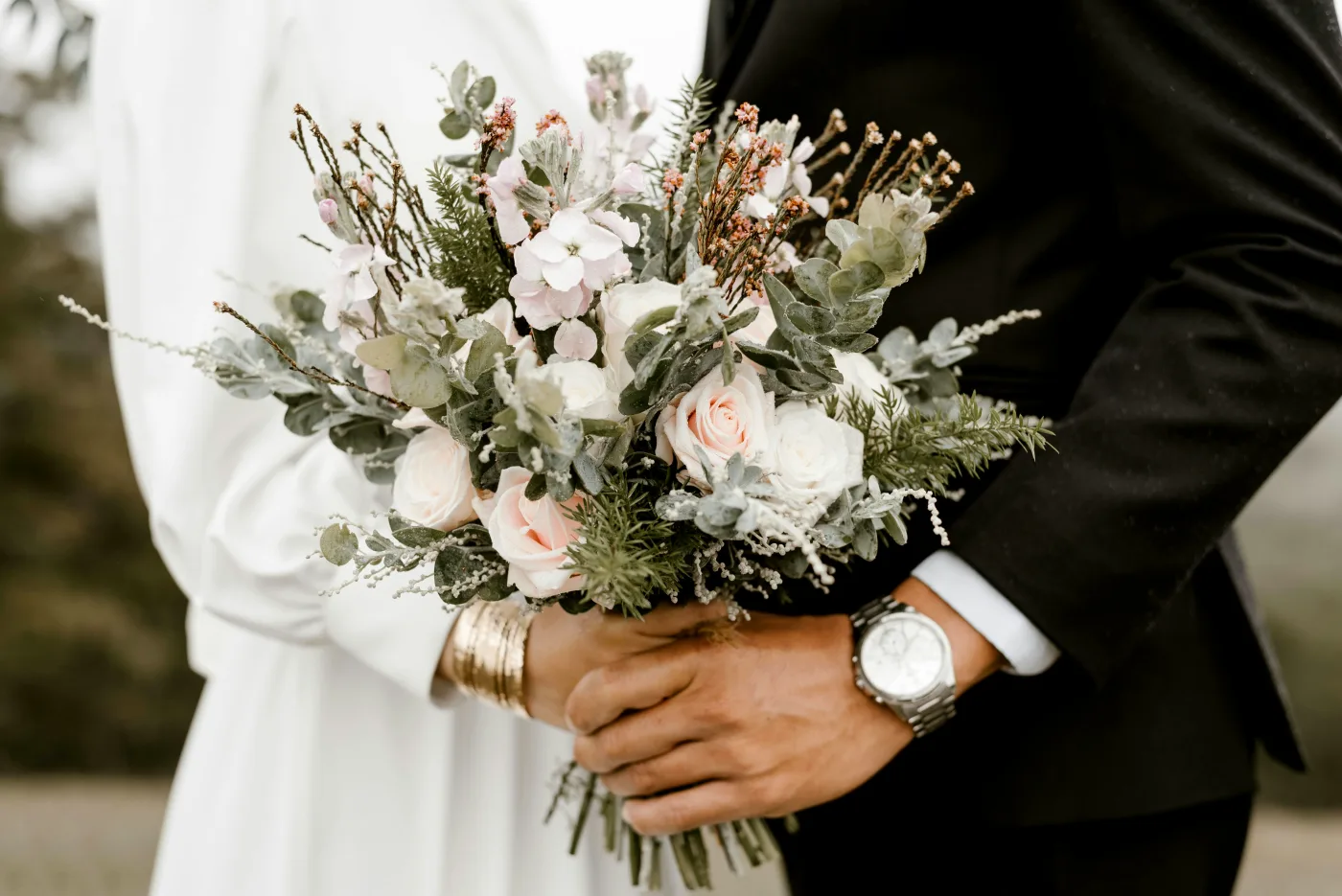
Find the Perfect Wedding Chef
Ready to make the wedding dinner the highlight of the day? View chefs and menus for the wedding — from intimate dinners to grand celebrations.